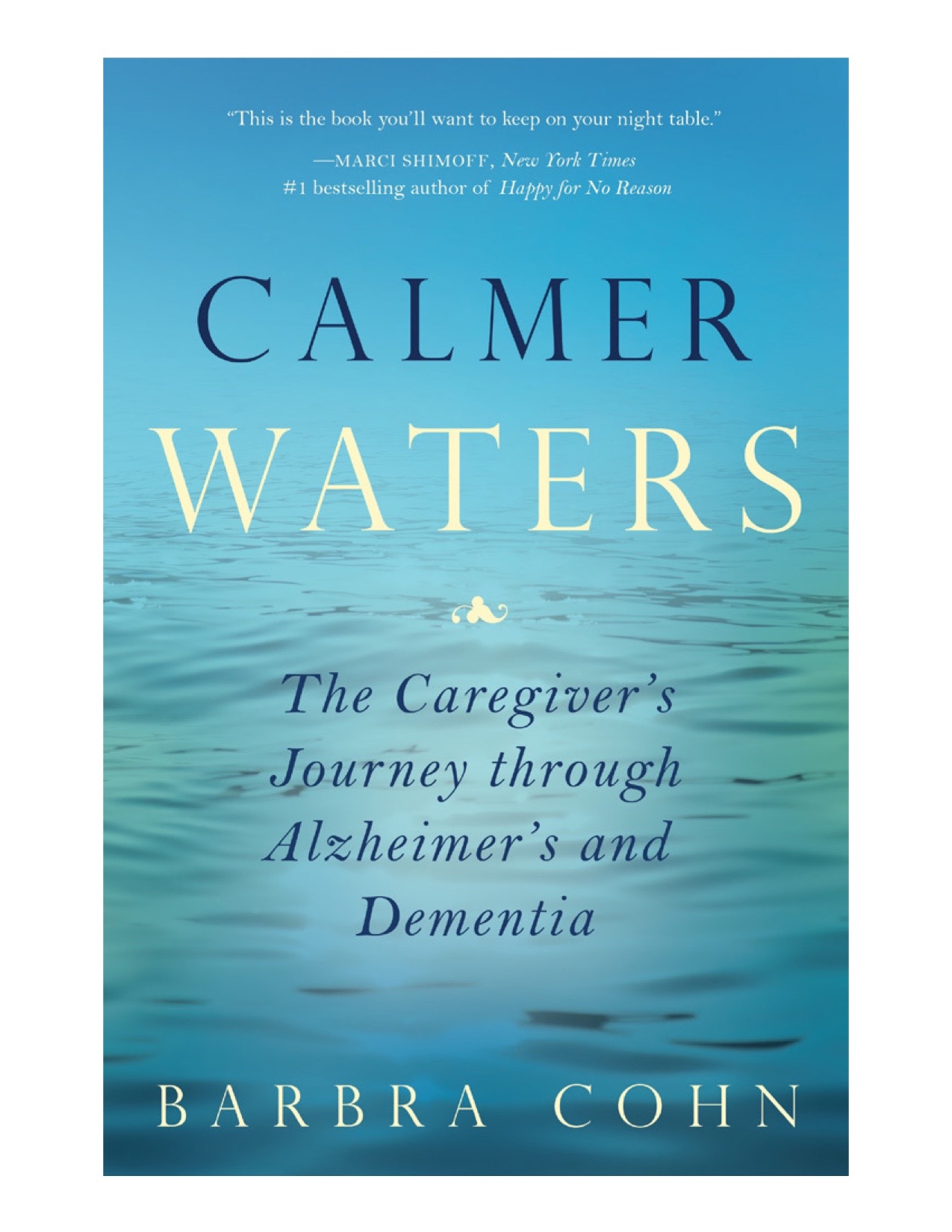
You’re tired, you’re stressed–You and 45 million or so American caregivers. So what are you going to do about it? Don’t say that “I don’t have time to take care of myself.” I’ve been there and done that. But I always promised myself that I was not going to be a martyr and sacrifice my health for my husband’s illness. Because if both of us went done that wasn’t going to serve any purpose, least of all our children. They were barely adults when my husband was in the throes of Alzheimer’s disease. They needed at least one healthy parent. And whether you are taking care of a spouse, parent or child, there are other people in your life who love and need you, not necessarily to take care of them, but to love and support them emotionally.
When you are a caregiver, it’s hard to find the time to go to the gym or even take a shower, somedays. But it’s absolutely vital that you take care of yourself or you will end up getting sick and then who will take care of your loved one? Who will take care of YOU?
Here are 10 easy ways to take the edge off your stress and fatigue so you feel some relief.
- Say a positive affirmation before you get out of bed. “This day is going to be a good one.” “I am grateful for my friends and family.” “I am healthy and full of energy.” “I am strong and competent.” Say something positive to set the tone of the day.
- Before you reach for a cup of coffee, drink a glass of hot water with lemon. It hydrates your body and brain, the lemon helps to alkalize the system (yes, it’s counter intuitive), which is usually too acidic, and it helps with regularity.
- Ask for help! You don’t have to do it all by yourself. No one is going to think badly of you if you take some time for yourself. If your loved one resents your going out, it’s okay. Don’t become a slave to their wishes and rants. If you can’t leave your loved one alone, please ask a neighbor, friend or home care professional to help at least a couple hours a week. Some social service programs provide free respite care.
- Many cities throughout the U.S. offer volunteer snowbusters (volunteers who will shovel your walk and driveway), fix-it volunteers who will help with easy home repairs, and yard maintenance volunteers.
- Meet a friend for a chat over coffee. Having a good chat and/or laugh, either via telephone or in person does wonders.
- Find a walking partner in your neighborhood and try to walk at least once a week (preferably 3 times a week).
- Put on a CD, vinyl record or the radio and listen to your favorite music. If your care partner is mobile, ask him/her to dance. There is nothing like music or dance to uplift the spirit.
- Use essential oils to immediately diffuse feelings of sadness, depression, anxiety, etc. Lavender oil is the most frequently used fragrance. You can also try bergamot, grapefruit, lemon, orange, clary sage, geranium, rose, and ylang ylang, frankincense, and myrrh. Put the oil in a diffuser or spray bottle to mist your collar or pillow. Find a fragrance that is pleasing to your care partner. It’ll help him/her also.
- Take a multi-vitamin mineral supplement to support your overall health, well-being, and immunity.
- It’s important to get at least 6 hours (preferably 7 or 8) of sleep every night. Of course, this isn’t always possible if you are caring for someone and need to get up at night, or are worried about paying the bills, taking care of the car, getting a new stove, etc. If you can’t get in the hours at night, put your feet up for 10 minutes during the day when your care partner naps. Or take a power nap. It really helps.
Wishing you and your loved ones a healthy, happy New Year! And remember that “this too shall pass.”
Barbra Cohn cared for her husband Morris for 10 years. He passed away from younger-onset Alzheimer’s disease in 2010. Afterward, she was compelled to write “Calmer Waters: The Caregiver’s Journey Through Alzheimer’s & Dementia”—Winner of the 2018 Book Excellence Award in Self-Help—in order to help other caregivers feel healthier and happier, have more energy, sleep better, feel more confident, deal with feelings of guilt and grief, and to ultimately experience inner peace. “Calmer Waters” is available at Amazon, Barnes & Noble, Boulder Book Store, Tattered Cover Book Store, Indie Bound.org, and many other fine independent bookstores, as well as public libraries.





 Instead of worrying about what to give a friend or loved one who suffers from Alzheimer’s disease or dementia consider this. What that person really wants more than anything is to just be with you. So here’s a list of things you can do together.
Instead of worrying about what to give a friend or loved one who suffers from Alzheimer’s disease or dementia consider this. What that person really wants more than anything is to just be with you. So here’s a list of things you can do together.